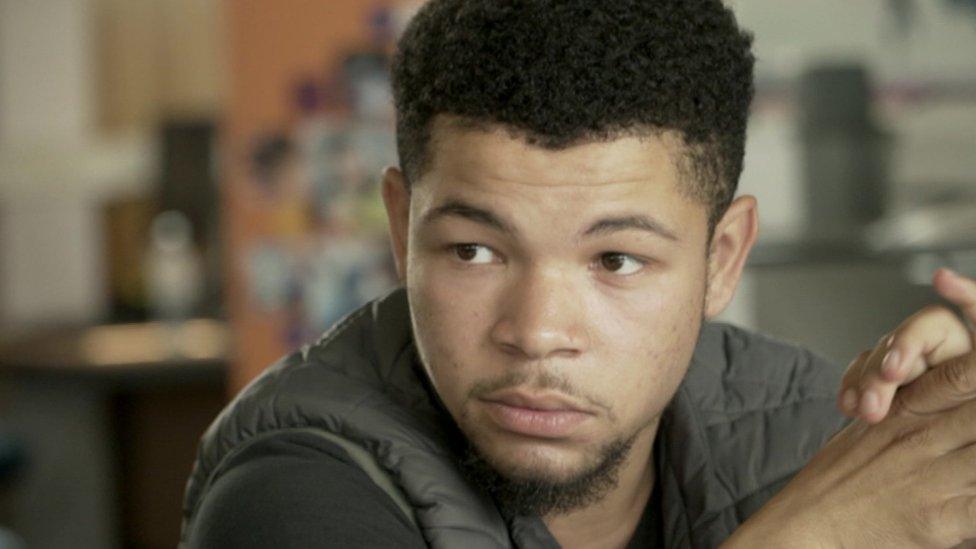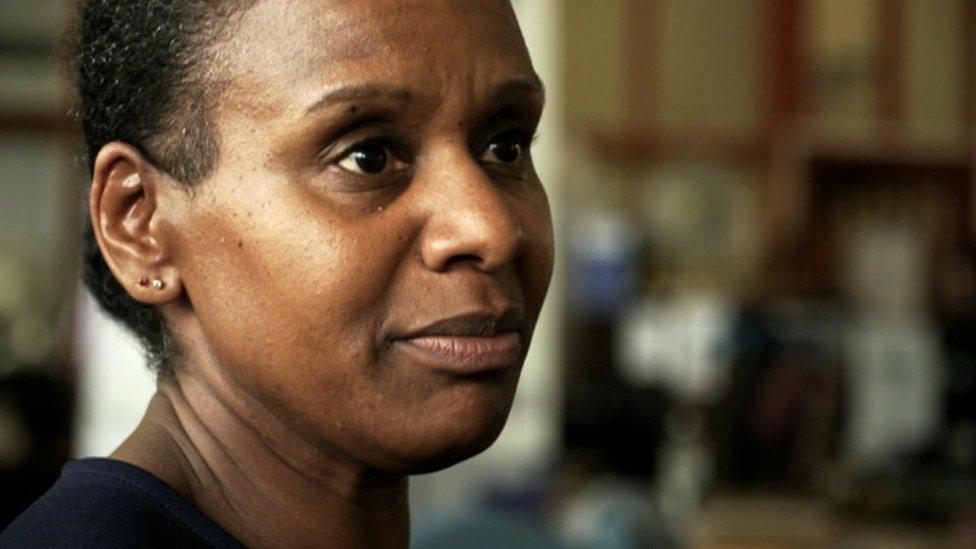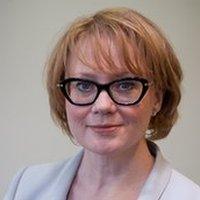Poor GCSE passes for one in eight teens, figures show
- Published
Asher Cecil-Wright says a 'second chance' at college has helped him succeed.
Asher Cecil-Wright sat five GCSEs when he was 16, but didn't get a pass grade in any of them.
"What effect did it have on me? Really bad. I couldn't do nothing."
At school, he couldn't focus on lessons, didn't take it seriously and was eventually excluded, ending up in a smaller unit for children with behavioural problems.
Now 20, Asher looks back, and wishes his younger self had listened to the advice he would give now.
"I never ever believed in myself. I never thought of my future. I was just mucking about while I was young, thinking 'forget school'...
"When you get older you realise you ain't got those opportunities. When they go by, what else are you going to do?"

Asher is now studying at City of Wolverhampton College
Asher isn't alone, as analysis of 2018's results in England by the exams regulator Ofqual for the BBC shows:
561,180 16-year-olds sat GCSEs
but 70,730 - 12.6% - didn't get a single good pass at grade 4 or above
a further 23,210 - 4.1% - got at least one grade 4 or above pass, but not in maths or English.
Asher is now trying to get more basic skills, studying one evening a week for a Level 2 (GCSE pass equivalent) engineering qualification.
He was able to start it after doing a basic study programme at City of Wolverhampton College, which is open to young people who can't get onto other courses.
Lorna Prosser devised the programme at the college in response to the growing number of students coming to them with low levels of attainment.
"It's unique because it supports students who are probably going through periods of depression, or need some confidence building. It raises their confidence and aspirations.
"It also gives them employment skills... It sets them on that path."
'Scandalous neglect'
Even failing GCSE English by just one grade can have serious consequences, according to recent research by the Centre for Vocational Education Research at the London School of Economics. , external
It can mean that doors to other post-16 courses are often shut, teenagers lose confidence and this can ultimately lead to what economists call "wage scarring".
In other words, being trapped as an adult at or below the minimum wage, or struggling to get work at all - simply from failing one crucial GCSE.
The centre's director, Prof Sandra McNally, says in this respect the UK is worse than other major economies.
"It's scandalous that it has been neglected for so long - it's got worse over time."
This is the issue, she says, that politicians should focus on in England's education system.

Lorna Prosser devised a programme for students with few qualifications
More young people are doing well, going on to university, but that does not help those whose school record means they struggle to progress onto any qualification at Level 3, the equivalent of A-level.
Prof McNally says not only do they struggle to get a job where their pay can increase, but: "It also means that if something bad happens to the economy, it's harder to find another job, so there are consequences for their living standards in the long term and for their family".
Asher isn't deterred: "I'll bring myself up, whatever it takes".
His older brother is in work, and he is determined to get beyond the level of GCSEs. "I feel like for me, in my life, I'm on the edge. I've got to work, I've got no choice.
"Do you really want to be around the streets selling drugs? You need something behind you to progress."
